Understanding The Role Of A Team Manager: Key Skills And Strategies
Discover the essential skills and strategies every team manager needs to lead effectively and boost team performance.
A team manager is the key to a strong, successful team, guiding everyone toward shared goals while keeping the workplace positive and productive. This role mixes leadership, team resource management, and people skills to keep teams motivated and on track. In this blog, we’ll cover what a team manager does, the skills needed to do well, and practical ways to boost team performance. Whether you’re new to leading or want to improve, this guide gives you clear, simple tips to succeed as a team manager.
What Is a Team Manager?
A team manager leads a group of people working together to reach common goals. Unlike project managers, who handle specific, short-term projects, team managers focus on ongoing team tasks, performance, and growth. They make sure the team’s work supports the company’s goals, manage resources well, and keep everyone motivated.
Team managers work in all kinds of industries like tech, healthcare, marketing, and more. Their job changes based on the team’s size and purpose. At their core, they guide teams through challenges, encourage teamwork, and use resources wisely to achieve success. This is why they are so important in project and team resource management.
What Does a Team Manager Do?
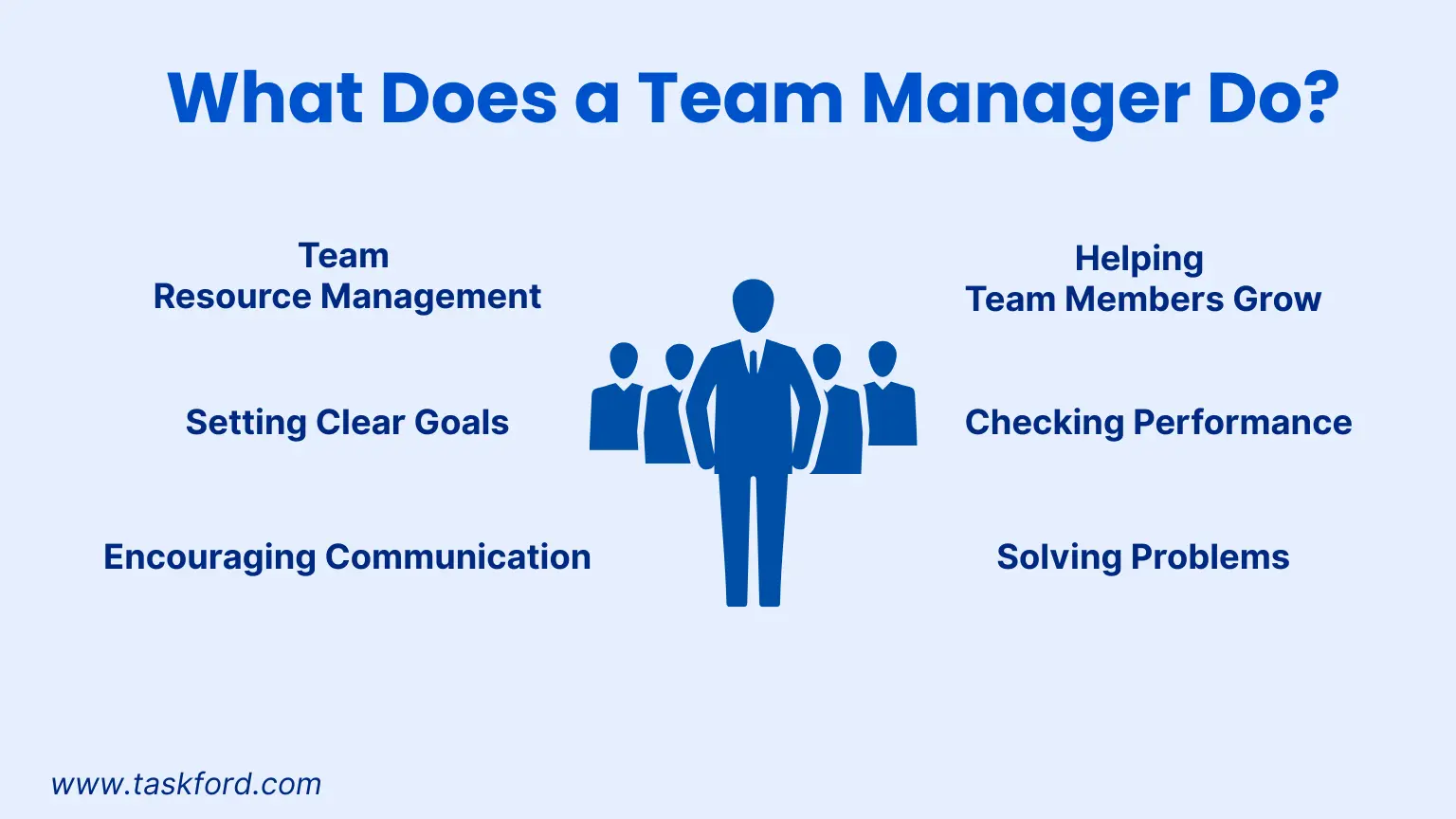
Team managers have several important tasks that shape how their team works and succeeds. Here’s what they do:
-
Team Resource Management: They assign tasks based on team members’ strengths and manage budgets and tools to avoid waste. For example, a team manager in a design agency might give creative tasks to an artistic team member and data work to someone good with numbers.
(Also learn: Explain Resource Management)
-
Setting Clear Goals: They set goals that match the company’s plans and break them into simple tasks so everyone knows what to do.
-
Encouraging Communication: They keep information flowing, solve conflicts, and create a space where team members feel comfortable sharing ideas.
-
Checking Performance: They track progress, give feedback to help team members improve, and celebrate wins to keep spirits high.
-
Helping Team Members Grow: They offer training, mentorship, or new opportunities to help team members build skills and stay engaged.
-
Solving Problems: They handle issues like disagreements or resource shortages, making choices that balance short-term needs with long-term goals.
These tasks keep the team focused and moving forward.
Key Skills for a Team Manager
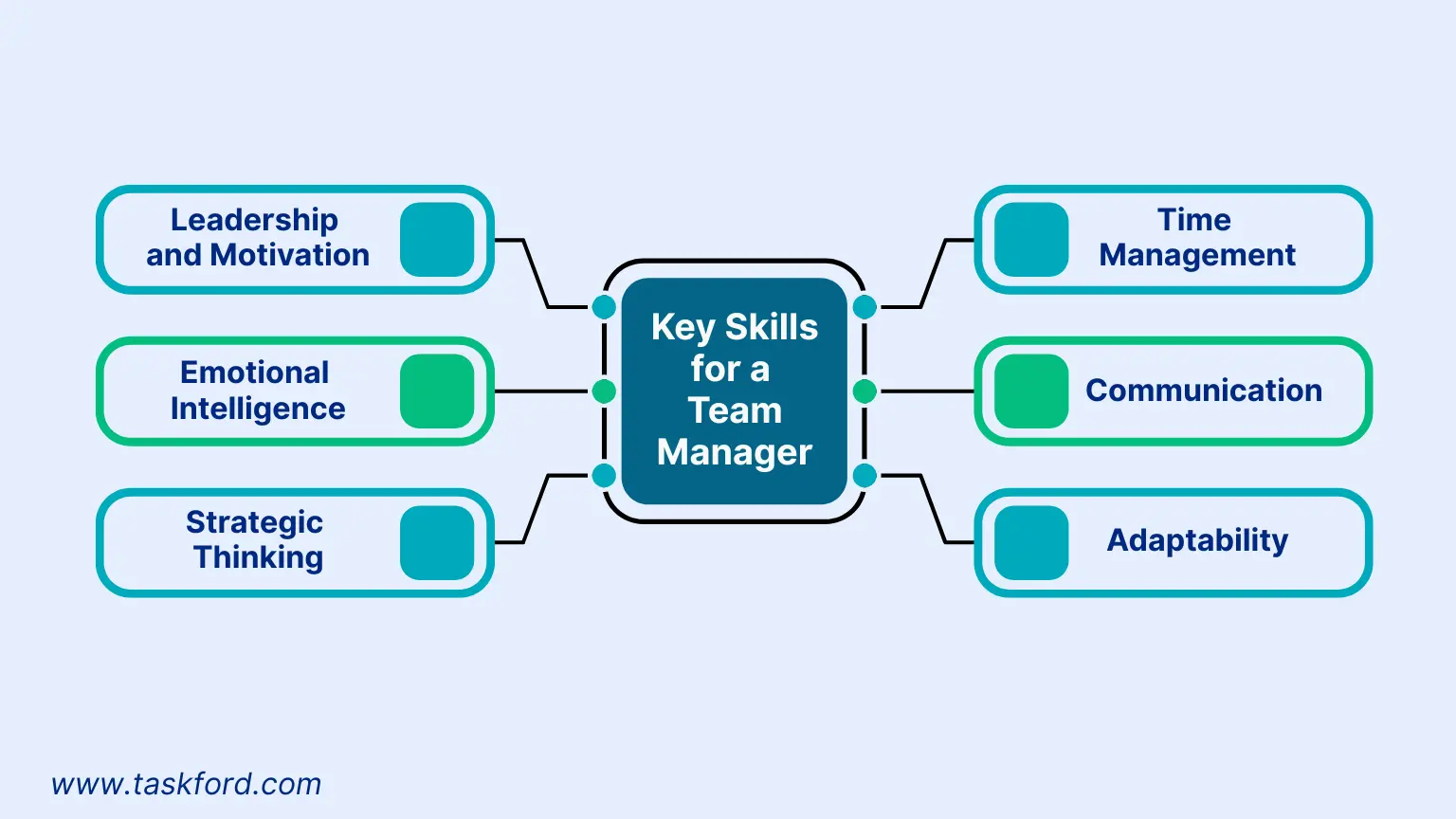
To be great at team resource management and leadership, team managers need a few key skills. Here’s what matters most:
- Leadership and Motivation: Good managers inspire their team to work hard. They lead by example and use praise or encouragement to keep everyone motivated.
- Emotional Intelligence: This helps managers understand their own feelings and connect with their team. It’s important for solving conflicts and creating a positive vibe.
- Strategic Thinking: Managers make sure team work supports company goals. They plan how to use resources and adapt to changes like new priorities.
- Time Management: They prioritize tasks and help the team meet deadlines without getting overwhelmed.
- Communication: Clear communication means sharing instructions, giving feedback, and listening well to build trust.
- Adaptability: Managers need to handle changes, like new goals or unexpected problems, while keeping the team focused.
These skills help team managers lead effectively.
Strategies to Excel as a Team Manager
Skills are important, but you need practical ways to put them to work. Here are simple strategies to improve resource management and performance.
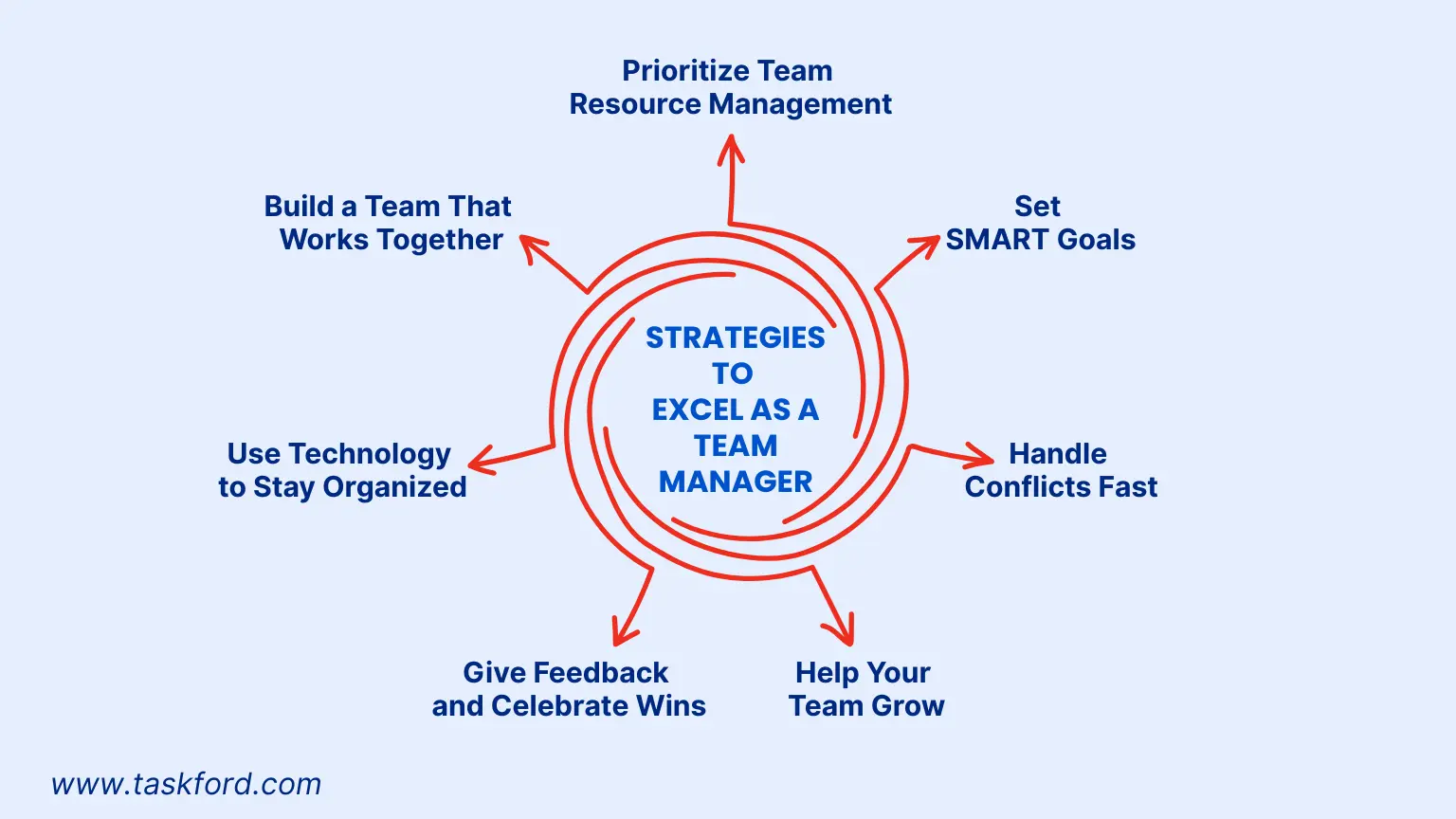
Prioritize Team Resource Management
Good team resource management keeps things running smoothly. Start by checking your team’s resources such as skills, budgets, and tools. Assign tasks based on what each person does best. For example, in a sales team, you might give client calls to someone great with people and reports to someone good with data. Check resources regularly to avoid burnout or waste, using tools like Trello or Asana to stay organized.
(Learn more: How To Reduce Burnout On A Project)
Build a Team That Works Together
A team that gets along does better work. Hold regular meetings where everyone can share ideas. Plan team-building activities, like group projects or casual meetups, to build stronger connections. When team members feel valued, they’re more motivated and productive.
Set SMART Goals
SMART goals (Specific, Measurable, Achievable, Relevant, Time) give your team a clear path. Instead of saying “do better,” set a goal like “grow sales by 10% in three months with a new ad campaign.” This keeps everyone focused and makes success easier to measure.
Use Technology to Stay Organized
Tools like Trello, Asana, or TaskFord make it easier to track tasks, check progress, and manage resources. These tools show you what’s happening with the team, so you can catch problems early and keep everyone on the same page.
Give Feedback and Celebrate Wins
Feedback helps your team improve, and celebrating wins keeps them motivated. Offer clear, helpful feedback on what’s working and what needs work. Praise good efforts with shout-outs or small rewards to show you value their hard work.
Help Your Team Grow
Support your team’s growth with training, certifications, or mentorship. For example, a manager in a tech company might help a team member learn a new coding skill. When you invest in their growth, they stay engaged and bring more to the team.
A team manager can also use a skills matrix to evaluate team members' skills and help them improve their attributes.
Handle Conflicts Fast
Conflicts can slow down a team, so deal with them quickly. Listen to everyone involved, figure out the problem, and find a fair solution. For example, if two team members disagree on a task, talk it out to find a way forward that works for both.
Common Challenges and How to Handle Them
Team managers face challenges that test their skills. Here’s how to deal with some common ones:
- Balancing Team and Company Goals: It’s tricky to align team tasks with the company’s plans. Talk regularly with senior leaders to understand the big picture and share it with your team.
- Managing Diverse Teams: Diverse teams have great ideas but might struggle with communication. Encourage open talks and offer training on teamwork to bring everyone together.
- Fixing Underperformance: If someone’s not doing well, talk to them to find out why. Make a clear plan with specific goals to help them improve, and check in often.
- Dealing with Limited Resources: When resources are tight, focus on the most important tasks. Ask for more resources if needed, or find creative ways to work, like training team members to handle multiple roles.
Handling these challenges keeps your team strong and focused.
Why Good Team Management Matters
When team managers do their job well, it makes a big difference. Smart team resource management improves productivity, keeps team members happy, and supports company goals. A positive workplace cuts down on turnover, sparks new ideas, and builds teams that handle challenges well and deliver great results.
Good managers create teams where people feel valued. By focusing on communication, clear goals, and resource management, they build teams that go beyond expectations and help the company succeed in the long run.
How TaskFord Supports Team Managers
TaskFord is an advanced project management and resource planning platform that helps team managers stay organized and lead effectively with many tools. It’s designed for teams of all sizes, from startups to large companies, and offers features that simplify team resource management and project planning. Here are some key TaskFord features that support team managers:
-
Task Management: TaskFord lets you track tasks with flexible views like List, Table, Kanban, and Gantt. You can assign tasks, set priorities, and monitor progress in real time, making it easy to manage daily work and keep everyone aligned.
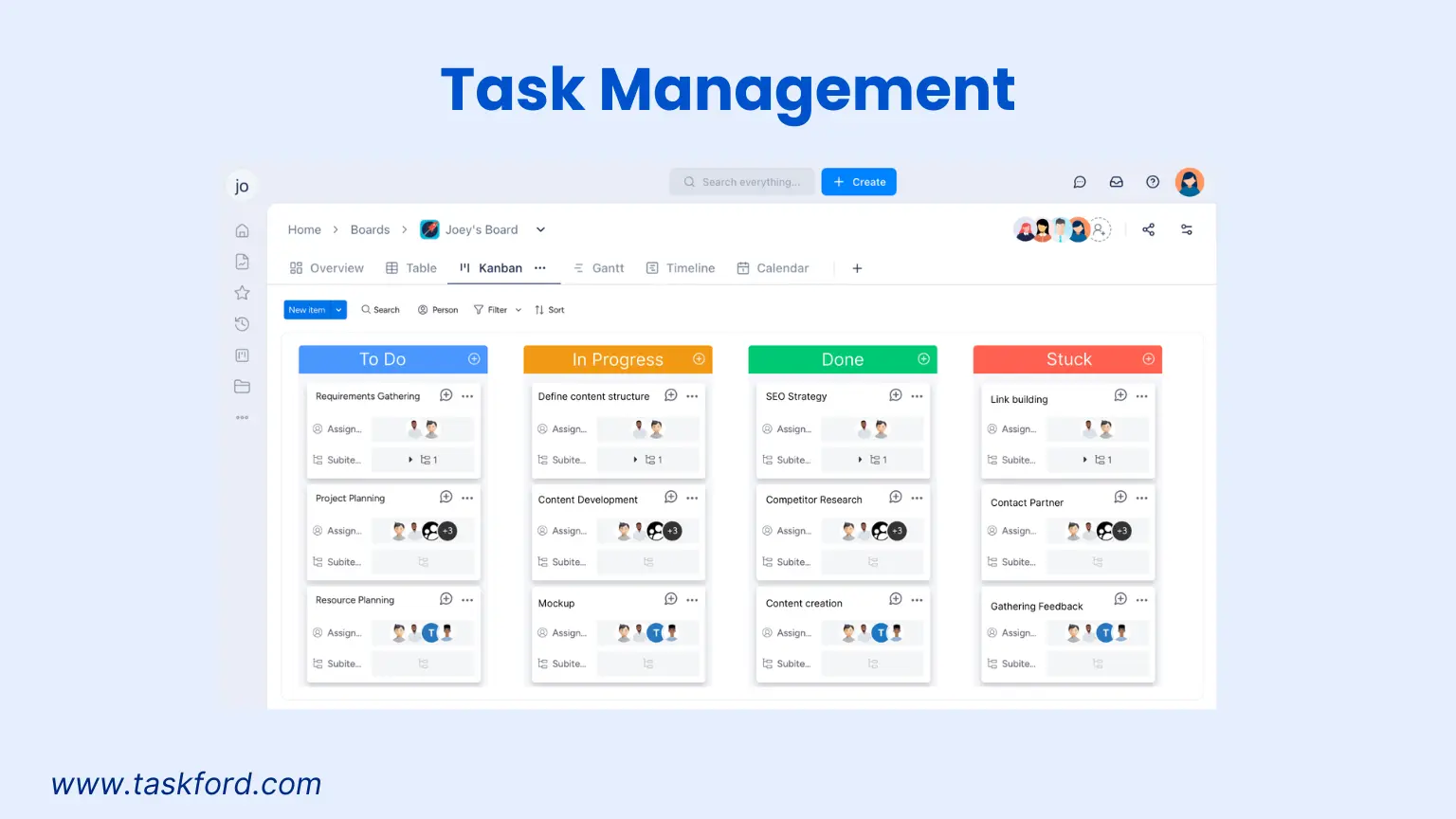
-
Project Management: Plan projects from start to finish with Gantt charts, timelines, and sprint planning views. TaskFord supports task dependencies and critical path tracking to keep projects on schedule and spot risks early. Users are excited about upcoming Gantt chart improvements.
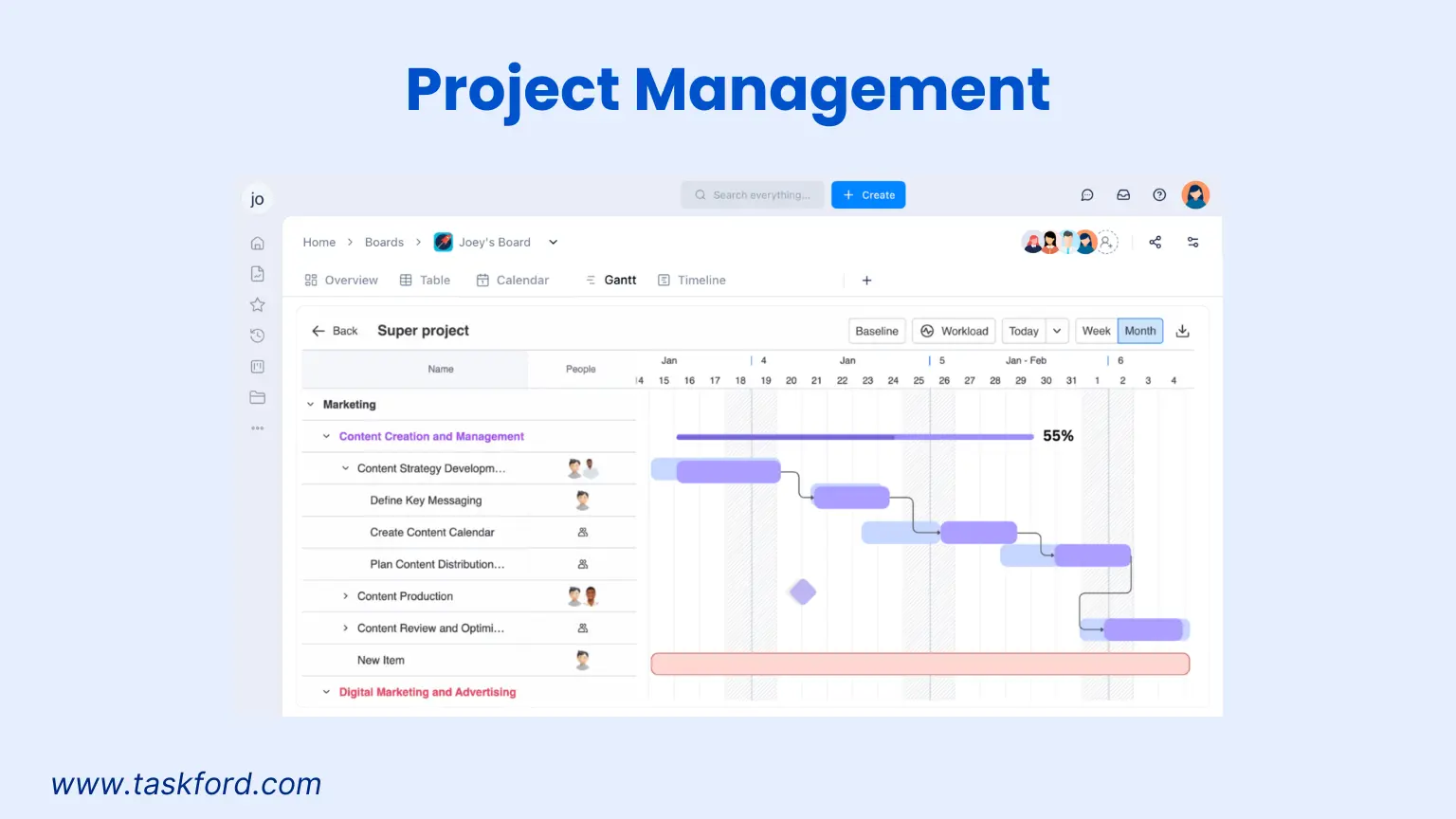
-
Resource Management: Balance team workloads with TaskFord’s resource planning tools. Allocate resources smartly to avoid overloading team members, and track time spent on tasks to optimize productivity. Users praise its ability to provide workload insights and prevent bottlenecks.
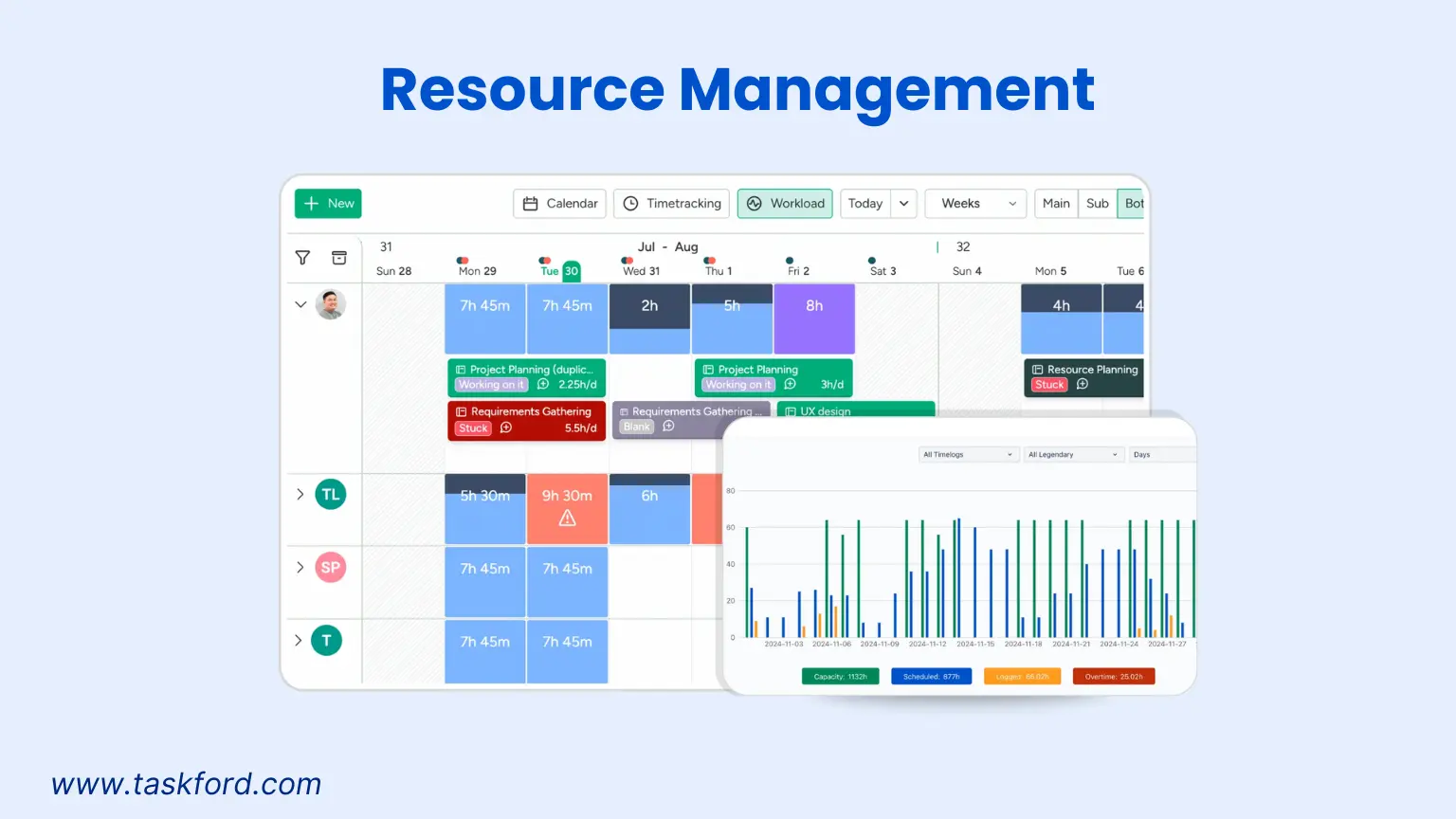
-
Portfolio Management: Get a big-picture view of multiple projects across teams. Timeline and Gantt views help you monitor overall progress and ensure alignment with company goals, perfect for managing complex programs.
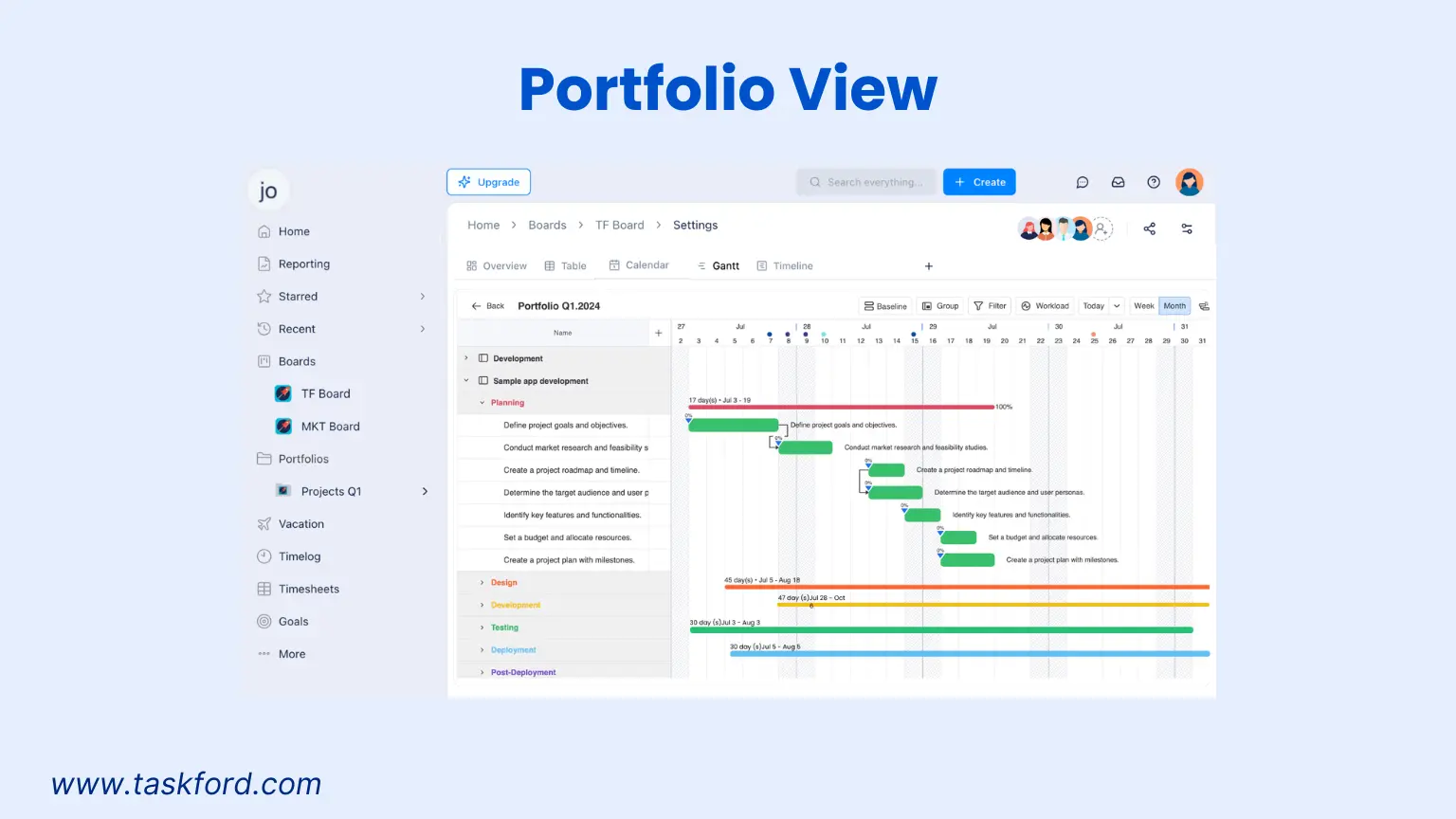
-
Time Tracking: TaskFord’s timesheet features make it easy to log work hours and analyze time spent on tasks, helping managers meet deadlines and boost efficiency. Users find it a modern alternative to older timesheet apps.
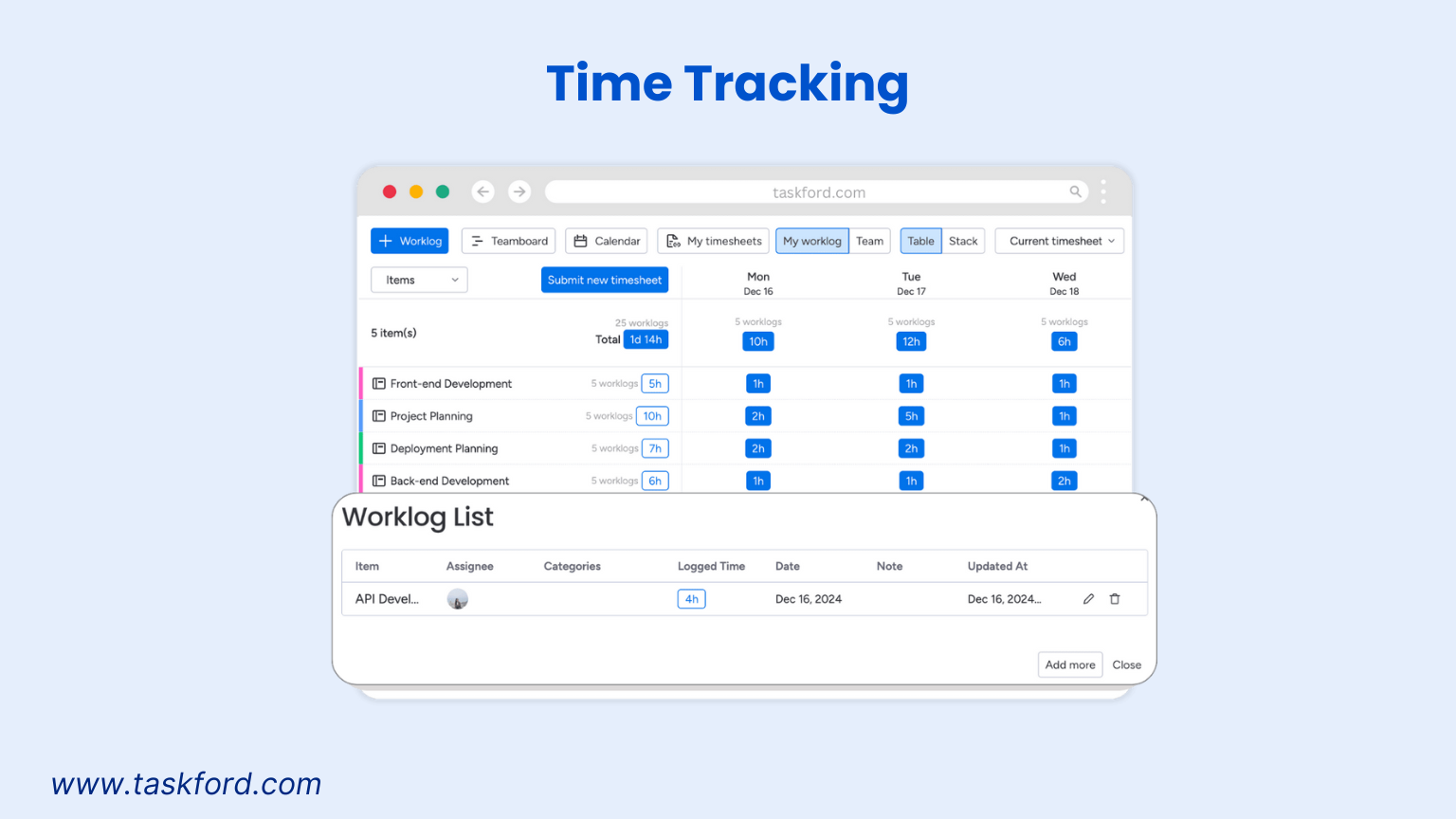
-
Real-Time Collaboration: Constant notifications and status updates keep team aligned, helping team members know the progress of the project.
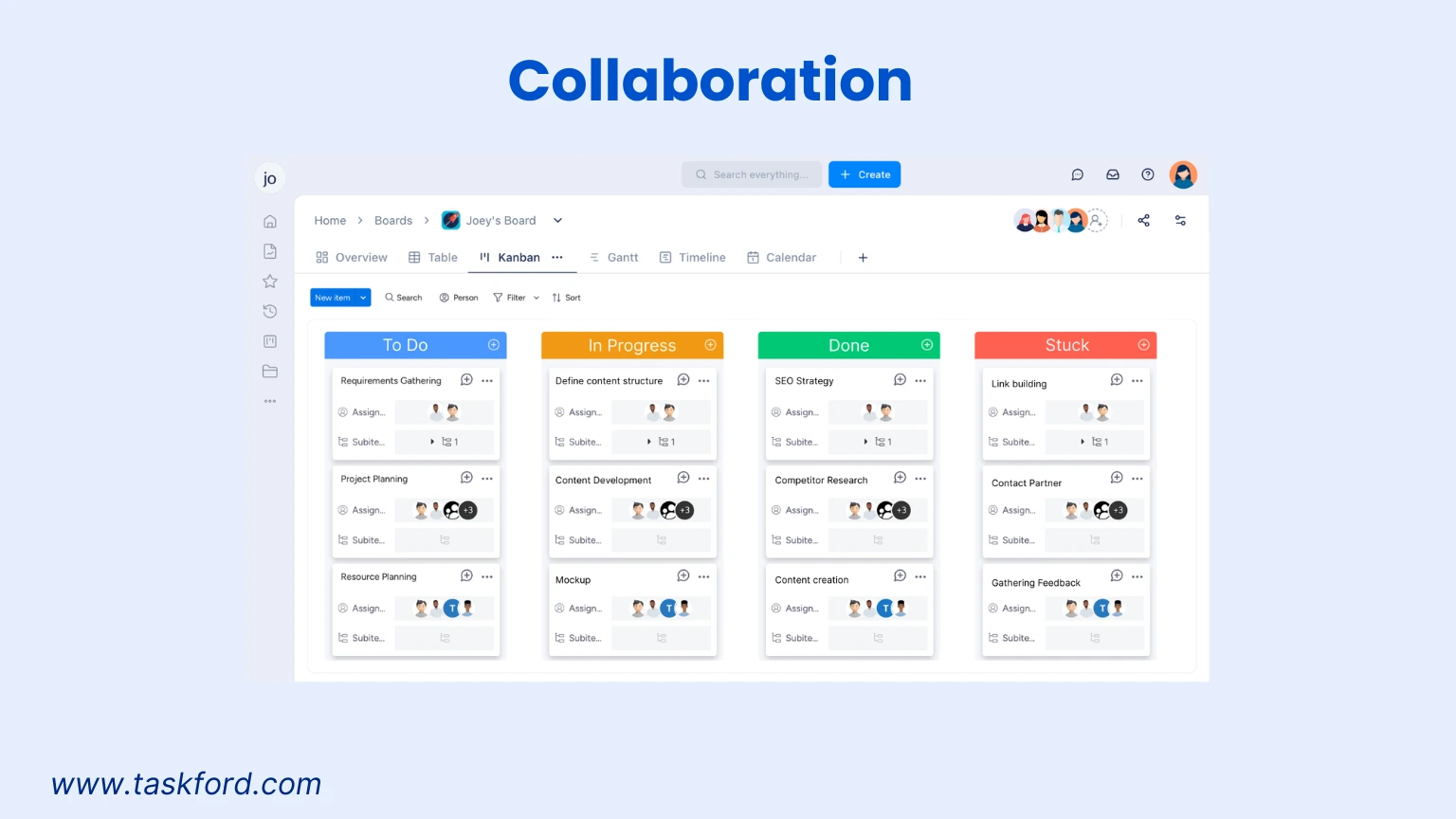
TaskFord is a reliable tool for team managers looking to organize tasks, manage resources, and track progress in one place.
Conclusion
Being a team manager is a tough but rewarding job that needs leadership, emotional intelligence, and smart planning. By building skills like team resource management, communication, and adaptability, and using strategies like SMART goals and teamwork, managers can lead their teams to great results.
Whether you’re leading a small group or a big department, staying open to learning and new ideas is key. The tips in this guide will help you handle the challenges of team management, build a strong team, and make a real impact on your organization.
Learn more
- How You Can Be a Good Manager: 8 Key Characteristics to Lead a Successful Team
- Lack Of Resources? 7 Smart Ways to Deliver Results Anyway
- Top 7 Leadership Mistakes That Can Destroy Team Trust
Making work simpler,
smarter, and more connected
Join our waitlist and be notified first.

Related Blog
Subscribe for Expert Tips
Unlock expert insights and stay ahead with TaskFord. Sign up now to receive valuable tips, strategies, and updates directly in your inbox.






